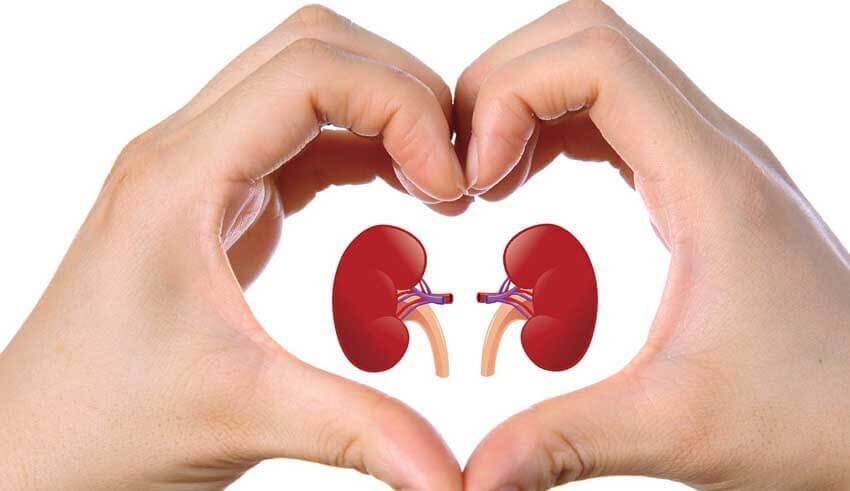How To Keep Kidneys Healthy?

Maintaining healthy kidneys is crucial for overall well-being. The kidneys, responsible for filtering waste products and excess fluids from the blood, also regulate electrolytes, minerals, and fluids, produce hormones for controlling blood pressure and red blood cell production, and help in bone health. Unfortunately, kidney disease has become increasingly prevalent. It is, therefore, essential to take care of these vital organs to avoid complications. Here are some key ways, supported by scientific research, to maintain healthy kidneys:
YOGA
Yoga is an ancient practice that can improve physical, mental, and emotional well-being. Scientific studies suggest that yoga can also benefit kidney health. A randomized controlled trial by Thakur et al. (2020) showed that a regular yoga practice reduced oxidative stress and inflammation markers in patients with chronic kidney disease (CKD). Another randomized controlled trial by Roshan et al. (2019) found that practicing yoga improved the quality of life of CKD patients.

Additionally, practicing yoga can help reduce stress, which can be beneficial for kidney health. Stress can cause inflammation and increase blood pressure, which can damage the kidneys. By practicing yoga, individuals can reduce stress and promote relaxation, which can positively impact kidney function. Yoga can also improve blood circulation, increase flexibility and range of motion, reduce blood pressure, improve breathing, and support a healthy immune system, all of which benefit kidney health (Amaravathi & Ramaraj, 2021).
It is important to note that yoga should be practiced under the guidance of a qualified yoga instructor, particularly for individuals with kidney disease. Certain yoga poses and breathing exercises may not be appropriate for everyone, depending on their specific health condition. It is always best to consult with a healthcare professional before starting any new exercise program, including yoga..
Reduces Stress:
Yoga is known to help reduce stress, which can be beneficial for kidney health. Stress can cause inflammation and increase blood pressure, which can damage the kidneys. By practicing yoga, you can help reduce stress and promote relaxation, which can have a positive impact on kidney function.
Improves Blood Circulation:
Practicing yoga asanas or poses can help improve blood circulation, which is essential for kidney function. The kidneys rely on a steady supply of oxygen and nutrients delivered through the bloodstream. By improving blood flow, yoga can help ensure that the kidneys receive the necessary nutrients and oxygen to function optimally.
Increases Flexibility:
Yoga is known for its ability to increase flexibility and range of motion. This can be particularly helpful for people with kidney disease, who may experience stiffness and joint pain due to their condition. By practicing yoga, individuals with kidney disease can help improve their flexibility, which can reduce pain and improve overall mobility.
Reduces Blood Pressure:
High blood pressure is a common complication of kidney disease, which can cause further damage to the kidneys. Yoga has been shown to help lower blood pressure, which can help protect the kidneys and reduce the risk of further damage.
Improves Breathing:
Pranayama or breathing exercises are an essential component of yoga practice. These exercises can help improve lung capacity and oxygenation of the blood. Good oxygenation of the blood is important for kidney function, as the kidneys require oxygen-rich blood to filter waste products and excess fluids.
Supports a Healthy Immune System:
A strong immune system is essential for protecting the body from infection and disease. Individuals with kidney disease may have weakened immune systems, making them more susceptible to infections. Yoga can help support a healthy immune system by reducing stress, improving circulation, and promoting overall physical and mental well-being.
It is important to note that yoga should be practiced under the guidance of a qualified yoga instructor, particularly for individuals with kidney disease. Certain yoga poses and breathing exercises may not be appropriate for everyone, depending on their specific health condition. It is always best to consult with a healthcare professional before starting any new exercise program, including yoga.
In conclusion, yoga can be a valuable tool for care for the kidney. It can help reduce stress, improve blood circulation, increase flexibility, lower blood pressure, improve breathing, and support a healthy immune system. By incorporating yoga into a comprehensive care plan for kidney health, individuals with kidney disease can help improve their overall well-being and quality of life.
A HEALTHY DIET
A healthy diet is essential for kidney health. The kidneys are responsible for filtering waste products and excess fluids from the body, so it is crucial to eat foods that support their function and minimize stress on the kidneys. Here are some dietary tips, supported by scientific research, for maintaining healthy kidneys:
Limit Sodium Intake
A high sodium intake can cause the body to retain fluid, which can put extra stress on the kidneys. To minimize stress on the kidneys, it is important to limit sodium intake to less than 2,300 mg per day. A systematic review by McMahon et al. (2018) found that reducing sodium intake can help lower blood pressure and reduce proteinuria in patients with CKD.
Increase Water Intake
Drinking enough water is essential for maintaining kidney function. When the body is dehydrated, the kidneys have to work harder to filter waste products, which can cause damage over time. A randomized controlled trial by Wabel et al. (2018) showed that increasing water intake can improve kidney function in CKD patients.
Eat a Balanced Diet
A balanced diet that includes a variety of fruits, vegetables, whole grains, lean protein, and healthy fats is important for kidney health. A systematic review by Santos et al. (2021) found that a healthy diet can improve kidney function and reduce the risk of CKD.
Limit Phosphorus Intake
High levels of phosphorus in the blood can be harmful to the kidneys, particularly for people with CKD. To minimize phosphorus intake, it is essential to avoid processed and packaged foods that contain phosphate additives, and limit intake of high-phosphorus foods such as dairy, nuts, and meats. A systematic review by Kaminski & Cervenka (2018) found that restricting dietary phosphorus can improve kidney function in CKD patients.
Monitor Protein Intake
While protein is an essential nutrient, excessive protein intake can put extra stress on the kidneys. For people with
Avoid Alcohol and Tobacco:
Smoking and excessive alcohol consumption can be harmful to the kidneys, so it is important to avoid or limit these substances. If you do drink alcohol, do so in moderation, and avoid smoking altogether.
In addition to these dietary tips, it is important to work closely with a healthcare professional, particularly for people with kidney disease. A healthcare professional can help develop a personalized dietary plan that meets individual needs and goals for kidney health. With proper care and attention, a healthy diet can help support kidney function and improve overall health and well-being.
In Addition , Here are some more tips for taking care of your kidneys:
Stay hydrated: Drinking enough water is crucial for maintaining kidney health. It helps flush out toxins and waste products from the body, which can otherwise accumulate in the kidneys and cause damage. Experts recommend drinking at least eight glasses of water per day, but the amount may vary depending on your activity level, climate, and overall health.
Control blood sugar: High blood sugar levels can damage the blood vessels in the kidneys, leading to kidney disease. If you have diabetes, it is essential to keep your blood sugar levels under control by monitoring your diet, taking medication as prescribed, and getting regular check-ups with your doctor.
Monitor blood pressure: High blood pressure can also damage the blood vessels in the kidneys. Regular blood pressure check-ups are essential, and if you have high blood pressure, you should take steps to lower it, such as losing weight, exercising, and taking medication as prescribed.
Exercise regularly: Regular exercise can help improve kidney function by lowering blood pressure, reducing inflammation, and improving insulin sensitivity. Aim for at least 30 minutes of moderate-intensity exercise, such as brisk walking, cycling, or swimming, most days of the week.
Avoid smoking and limit alcohol: Smoking can damage blood vessels and increase the risk of kidney disease. Alcohol can also damage the kidneys and worsen existing kidney problems. If you smoke, quit, and if you drink alcohol, do so in moderation.
Take medications as prescribed: Some medications can damage the kidneys, so it is essential to take them as prescribed and to discuss any concerns with your doctor. Over-the-counter pain medications, such as ibuprofen and aspirin, can also be harmful to the kidneys if taken in large doses or for extended periods.
Get regular check-ups: Regular check-ups with your doctor can help detect kidney problems early, before they become more serious. Your doctor may recommend regular blood and urine tests to monitor your kidney function and check for signs of kidney disease.
Finally, it is important to remember that taking care of your kidneys is a lifelong commitment. By making healthy lifestyle choices and getting regular check-ups, you can help protect your kidneys and enjoy better overall health and well-being. So, start taking care of your kidneys today!

